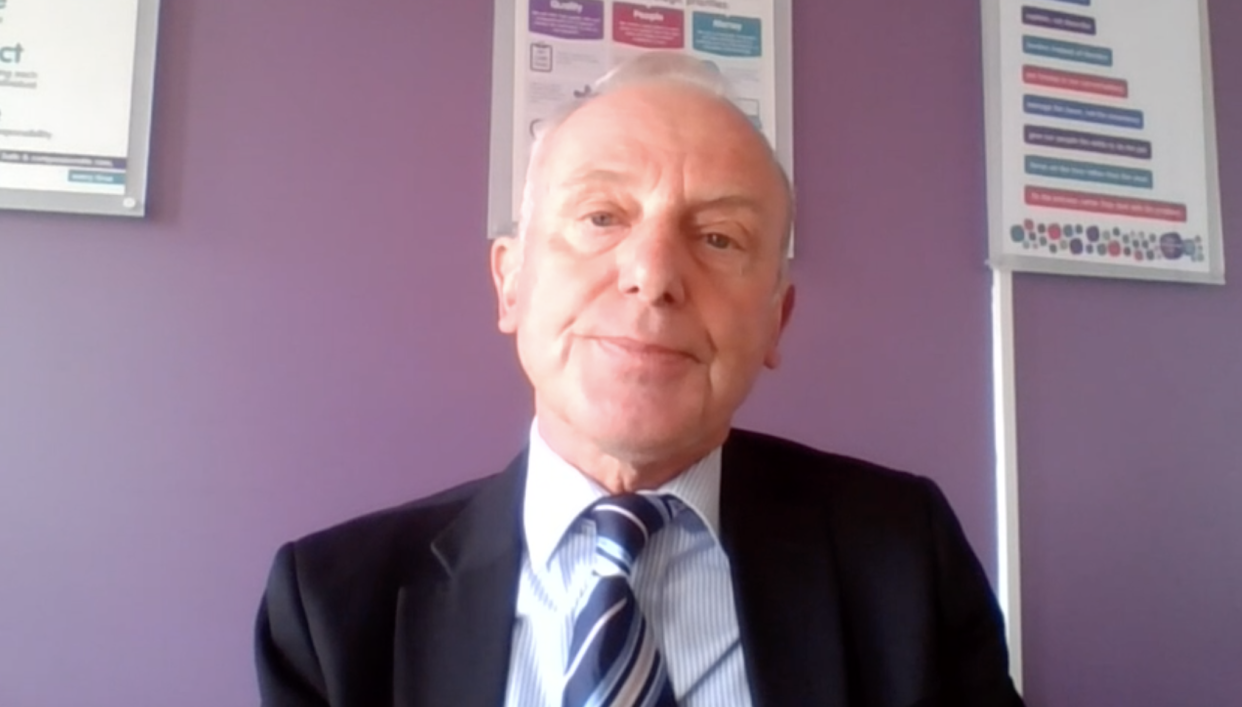Health expert's claim COVID-19 could 'fizzle out' branded 'very dangerous'

Seven months after the UK’s first coronavirus cases were confirmed, and five months since the peak of the outbreak, attention is now turning to how the nation will cope in the winter months.
Scientists, in a government-commissioned report, have already modelled a worst-case scenario in which a winter outbreak causes 120,000 deaths.
On the other hand, with COVID-19 hospital admissions low even as the number of new infections begins to creep up again, some have argued the virus is becoming less lethal.
Speaking to the BBC on Tuesday, one health expert said the virus could “fizzle out” in the coming months – a claim that has since been branded “dangerous”.
Prof Karol Sikora, a cancer specialist from the University of Buckingham, also told Politics Live that the virus “wants to be nice” to humans.
He said the “fizzling out” scenario is one of three possibilities, alongside more local spikes – such as those recently seen in Leicester and Oldham – and a second nationwide wave of infections.
Speaking to Yahoo News UK, however, Professor Ben Neuman, chair of biological sciences at Texas A&M University-Texarkana, countered: “The virus isn’t a teddy bear.
“It grows wherever it can and doesn’t have any sort of brain or external regulation to what we think or feel. All that is fairly obvious.
“With the idea of the virus fizzling out, severe precautions are the only things that have lowered virus numbers so far in this outbreak. While we may hope the virus will go away on its own, there is rational scientific basis for that hope. It’s just that, a wonderful dream.
“It is [dangerous]. People are looking for an easy way out of this, they are looking for any option that doesn’t involve hardship or wearing a mask. Unfortunately, the best public health advice is that we have to take the actions that we know have effects.”
Dr Michael Head, a senior research fellow in global health at the University of Southampton, also pointed to the World Health Organization’s latest “situation report” which showed there were nearly 1.8 million new infections in a week, with just under 25 million in total since the beginning of the outbreak.
“It would be very dangerous to promote the idea that the virus is ‘fizzling out’,” he said. “The pandemic is accelerating globally.”
“There is also the emerging evidence base around ‘long COVID’, with health consequences in even relatively mild cases.
“We are a long way from being anywhere near the concept of being able to say that COVID-19 is ‘fizzling out’.”
Bill Hanage, an associate professor at Harvard’s Center for Communicable Disease Dynamics, also wrote on Twitter: “He's an oncologist so can be forgiven for not knowing about infectious disease and not understanding the pandemic, but not for promoting himself as an expert.”
Read more: Moment minister breaks coronavirus rules with handshake before Boris Johnson meeting
Making the case for the virus reducing in potency, Prof Sikora had told Politics Live: “Something’s changed. There is only two dancers in this dance: the virus and ourselves, so things have changed on both sides.
“The virus has mutated, we know that. We don’t know why it’s mutated. It mutated in about March time, globally. It just changed a single building block of its protein structure, which is amazing. It’s probably changed again.
“It wants to live with us, that’s the problem. It wants to actually be nice to us and go on forever living with us, and killing us is not a good way to start a relationship.”
Of people’s behavioural changes, he added: “We’ve certainly changed and what we’ve heard about schools trying to implement hand washing and social distancing, all the other things, that’s a change in our behaviour and that will drive the infection down.”
Prof Sikora has been an outspoken, and high-profile, commentator during the pandemic.
Branded “professor positive” over his outlook towards the virus, he has previously spoken out against ministers and media outlets for “scaremongering”.
As early as 8 April – two weeks after the nationwide lockdown was imposed and two days before 7,680 new cases were recorded in a single day – Prof Sikora was arguing for the lockdown to start being lifted on 27 April.
The government actually started lifting the lockdown six weeks later on 13 June, when social “bubbles” were introduced for single person households.
However, his claims about the virus mutating follow similar comments by prominent infectious diseases professor Paul Tambyah, who told Reuters last month that an increasingly common mutation of the virus may be more infectious yet less deadly.
He said: “It is in the virus’ interest to infect more people but not to kill them because a virus depends on the host for food and for shelter.”
On Sunday, the last day for which data was available, there were 32 hospitalisations in England, out of a total 113,640 since the outbreak began.
On the same day, 1,715 new cases were recorded in the UK, the highest daily number since 31 May.
Coronavirus: what happened today
Click here to sign up to the latest news and information with our daily Catch-up newsletter

 Yahoo News
Yahoo News 

